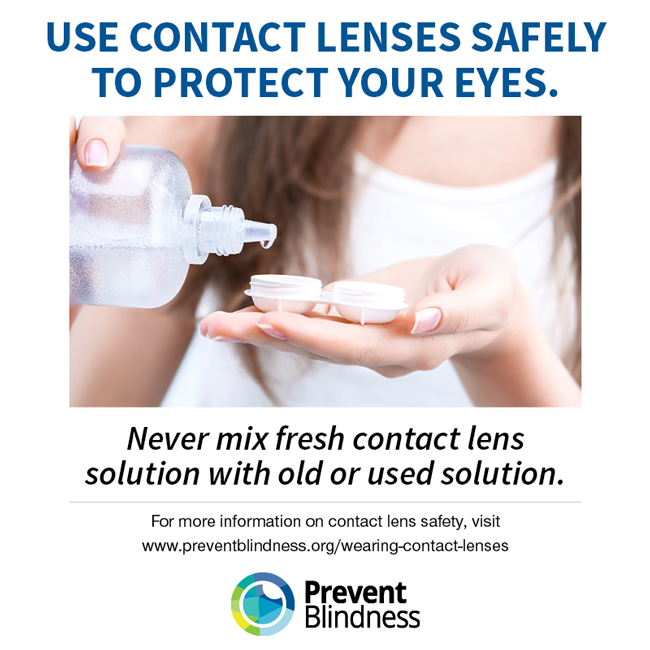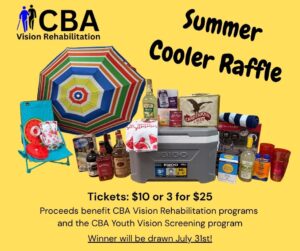
For many people, the vision correction from contact lenses feels more natural compared to glasses.
Contact lenses offer the most efficient eyewear solution for athletes and active individuals who enjoy playing sports. Because they sit on the surface of your eyes and move with them, contact lenses provide seamless vision correction. Their benefits extend to your peripheral vision and they won’t have the same types of visual disruptions that glasses do, such as reflections or fogginess. Since they don’t move around when your head or eyes move, you won’t have to worry about them falling out and potentially breaking.
Anyone interested in purchasing contact lenses must first receive an eye exam from a licensed eye care professional. All contact lenses are classified by the U.S. Food and Drug Administration (FDA) as prescription medical devices. This applies to prescription and non-prescription (cosmetic or decorative) contact lenses.
The FDA also states that contact lenses are not over-the-counter devices. Companies that sell them as such are misbranding the device and violating Federal Trade Commission regulations by selling contact lenses without a prescription. Contact lenses sold without a prescription from unlicensed vendors may be contaminated and/or counterfeit and are therefore not safe to use.
Preventblindness.org offers the following recommendations to keep eyes healthy while wearing contact lenses:
- Before handling contact lenses, wash hands with soap and water, then rinse and dry them with a lint-free towel.
- Minimize contact with water, including removing lenses before going swimming or in a hot tub.
- Wear and replace contact lenses according to the schedule prescribed by your eye care professional.
- During cleaning, using fresh solution, rub your contact lenses with your fingers, then rinse the lenses with solution before soaking them – even if the solution you are using is a “no-rub” variety.
- Contact lens cases should always be cleaned with fresh solution – not water. Then leave the empty case open to air dry.
- Do not re-use old solution or “top off” the solution in your lens case.
- Do not use cracked or damaged lens cases. Lens cases can be a source of contamination and infection.
Different types of contact lenses include:
Soft contact lenses come in two basic forms—daily wear and extended wear. Both lenses are made from thin, flexible material and water. Daily-wear lenses must be removed, cleaned, and stored every day. Extended-wear lenses are designed for overnight wear. However, there is an increased risk of infection associated with extended-wear lenses. They should be worn for the period of time prescribed by an eye doctor.
Hard contact lenses offer clearer vision with certain eye conditions, and specific types may last longer. Many types of hard contact lenses are available in bifocals. It may take longer to adapt to wearing hard contact lenses than soft contact lenses.
Daily-wear soft lenses are generally the most comfortable, and the eyes will adjust to wearing them in less time than with hard contact lenses. Soft lenses may be worn during vigorous physical activities and playing sports with less likelihood that the lenses will slip out of place. Soft contact lenses need special cleaning and disinfection and may tear easily, so they may not last as long as hard contact lenses.
Extended-wear soft lenses offer the same advantages as daily-wear lenses. These lenses may be worn for an extended period, up to a week. However, due to the risk of infection associated with extended use, daily removal and cleaning are recommended.
Regardless of what type of lenses you prefer, the health of your eyes should be your top concern. Using the lenses as prescribed by your eye care professional will help to avoid painful issues and possible vision loss.






